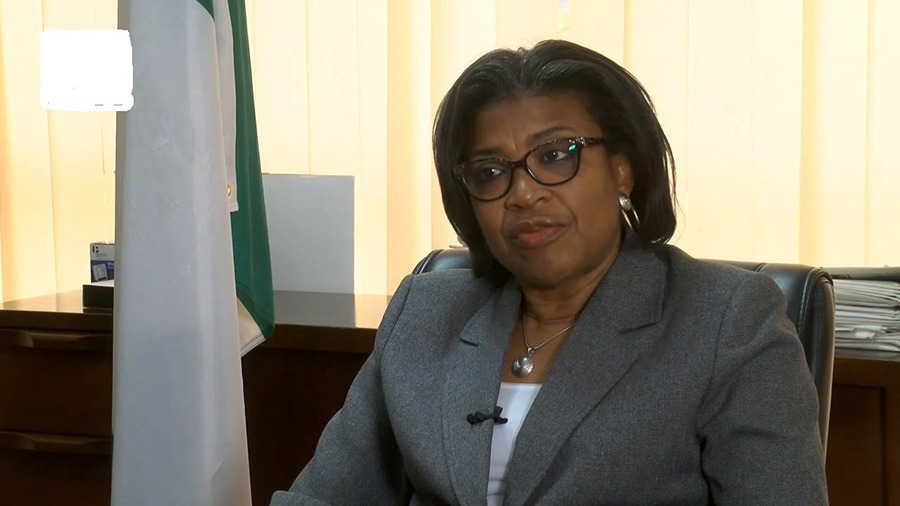The DMO held its monthly auction of FGN bonds on Monday (19 June ’23). It offered N360bn but raised N427.2.2bn through the re-opening of the 14.55% FGN APR 2029, and new issuances of the 14.33% FGN JUN 2033, 15.45% FGN JUN 2025, and 15.70% FGN JUN 2053 FGN bonds.
The participation level increased by 32.8% to N635.1bn compared with N478.9bn recorded in the previous month. The bids for the 10, 10, 15, and 30-year benchmarks were allotted at the marginal rates of 13.9% (previously 14.1%), 14.7% (previously 14.9%), 15.45% (previously 15.69%), and 15.7% (previously 15.8%).
The bid-to-cover ratio stood at 1.9x compared with 1.3x recorded in the May bond auction.
The demand at this auction primarily reflects improved system liquidity on the back of CRR refunds and recent maturities from NTB instruments which outweighed outflows from NTB and fx auctions. It is worth highlighting that the CBN recently announced it will normalize its CRR maintenance processes and ensure equity in its implementation across the banking industry.
Meanwhile, market liquidity stood at N156.7bn on Friday last week (the previous working day before the bond auction). Call, Overnight and repo rates closed within a range of 7% – 13%.
Domestic institutions were once again the core participants at the auction, as participation by foreign portfolio investors remains muted. Negative real interest rates due to persistent upticks in inflation (currently 22.41 y/y vs 22.22% y/y recorded in April ‘23) contribute to the apathy of foreign portfolio investors towards FGN bonds. At the next MPC meeting scheduled to hold in July ‘23, we expect a +50bps policy rate hike or a hold stance. MPR –Inflation currently stands at -3.9%.
It is important to highlight that the DMO had earlier revised its FGN bonds issuance calendar for June ‘23 to show the planned issuance of three new instruments. They include, the FGN JUN 2033 (10-year), FGN JUN 2038 (15-year) and FGN JUN 2053 (30-year) bonds. This is in addition to the reopening of the FGN APR 2029 bond (5-year). However, the maximum amount the DMO planned to raise remains unchanged at N2.4trn. YTD, the DMO has raised N2.9trn (exceeding the target by 20%).
Although the recent fuel subsidy removal implemented by the new government is a positive for FGN revenue (expected savings: N3.9trn this year), we still expect the DMO to exceed its 2023 domestic borrowing target via FGN bonds, as the Eurobond market remains expensive for emerging economies like Nigeria.
In the near term, the liberalization of the fx rate combined with forward steps towards clearing fx backlog will likely improve transparency, and boost investor confidence. In the medium term, we expect incentivization of local production as imports become more expensive. This should stimulate export-oriented industries, support economic diversification and boost fx earnings.
However, given the country’s current heavy import dependency, headline inflation is expected to rise. Furthermore, we expect an increase in external debt (i.e., nominal value) and debt sustainability ratios such as the Debt-to-GDP ratio (currently 34.6%, when you add the ways and means advances). Concerns around debt sustainability and creditworthiness will remain, potentially affecting the country’s ability to access external financing.
Looking ahead, over the next month, we expect yields to trend upwards on the back of relatively tight system liquidity as inflows would be limited to FGN bond coupon payments (c.N250bn) from July to August.

 Forex4 weeks ago
Forex4 weeks ago
 Naira3 weeks ago
Naira3 weeks ago
 Billionaire Watch3 weeks ago
Billionaire Watch3 weeks ago



 Naira4 weeks ago
Naira4 weeks ago






 Naira3 weeks ago
Naira3 weeks ago


 Naira2 weeks ago
Naira2 weeks ago






 Naira2 weeks ago
Naira2 weeks ago
 Commodities4 weeks ago
Commodities4 weeks ago













